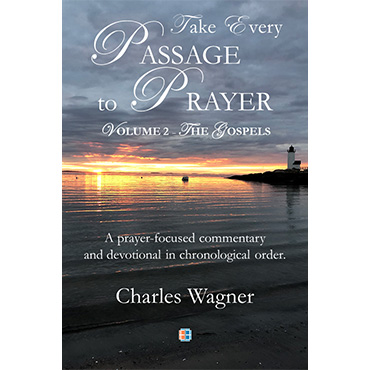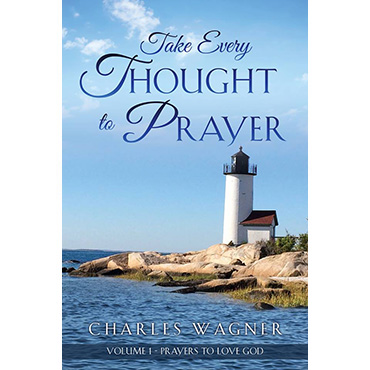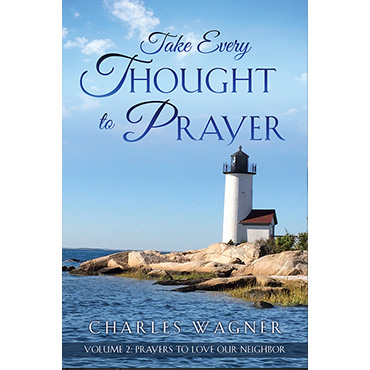The Gramazin Blog

Trouble for Jesus in Nazareth
Take Every Passage to Prayer - Volume 2, The Gospels
Saturday June 15, 2024
Luke 4:16-30, John 4:44
Father, I want to play the role You want me to play in life: on the stage or in the audience; at the podium or in a seat; as a leader or as a follower. Please equip me for that role and help me to thrive in it. Father, please help me to be humble before You and my brothers and sisters in Christ. If You equip a brother or sister with amazing gifts, and You call them to an incredible ministry, help me to celebrate the mission You have given them. Please take away that part of my heart that wants others to fail if I cannot succeed like they do. Amen.
Father, the text tells us that Jesus returned to Nazareth. However, all is not well. It was one thing for the people to praise Jesus for His incredible teaching. It was quite something else to believe that the young boy they used to know was the Son of God and the Messiah. Jesus knew that the people who lived in the lands of His childhood did not believe in Him.
Why? When you realize that someone who many revere and honor grew up in your own backyard, or perhaps in the bedroom next to yours, the sinful heart engenders jealousy and envy (Exodus 20:17).
- Do they think they are better than me? I hate them.
- Did they forget about me? I hate them.
- Do they have a better life than me? I hate them.
- Why didn’t they take me along with them? I hate them.
- Why didn’t I succeed like they did? I hate them.
The people are quoted in this text as saying, “isn’t this Joseph’s son?” The question screams of a contrast: “we see attributes in Jesus that we don’t see in his father, Joseph. How could Jesus be Joseph’s son?” We can conclude from the text that Jesus was confident, bold, and courageous. He was poised, determined, and tenacious. If the text suggests Joseph was noticeably different than Jesus, we can conclude that Joseph had a reputation for being uncertain, timid, apprehensive, hesitant, and unassuming. Jesus’ father was a follower and not a leader. He may have been withdrawn and bashful.
This could explain the absence of Joseph as a force in the new church throughout the gospels and in the book of Acts. Could it also be possible that You, who hardened and softened Pharoah’s heart, led Joseph to be unassuming?
It has been posited by historians that Joseph Kennedy managed the political careers of his sons, John F. Kennedy, Robert Kennedy, and Edward Kennedy. He used all of his power and influence to put his sons into positions of power and influence. I think of the father of a famous ice hockey player in the 1990s who so meddled in his son’s contracts that the NHL team his son played for eventually traded him; they couldn’t stand working with the domineering father any longer.
How would the effectiveness of Jesus’ ministry have been challenged had His adopted father Joseph been strong-willed, intrusive, and domineering? Would he have interfered in Jesus’ selection of disciples? Would he have tried to manipulate Jesus’ schedule and appearances? Would he have attempted to negotiate a compromise with the political and religious leaders that would have prevented Jesus from being crucified on the cross?
With these things in mind, I suggest that Joseph was a passive, mild, and unassuming man who just wanted to work alone in his carpentry shop. I suggest, Father, that his personality was of Your design so that Jesus alone would manage His ministry without the interference of His adopted father. Hence, the people of Nazareth looked at the confidence, boldness, and courage of Jesus and essentially asked, “how could He be the son of Joseph?”
The text tells us that Jesus, as He did every Sabbath, went into the synagogue. The public reading of God's law was necessary in a society where people didn't own books. It wasn't until Johannes Gutenberg invented the printing press in the 15th century that the common man had access to books. Therefore, if an individual wanted to know what was said in what we know today as the Old Testament, they had to go regularly to the synagogue to hear the reading of the Word of God.
The listeners would sit in a gallery that surrounded a desk in the center where the reader would read the text out loud. The leaders of the synagogue would keep the various scrolls in storage. A typical service at the synagogue would include a liturgy of prayers, the reading of the Word , and a discussion of the text that was read. With this in mind, it makes total sense that Jesus and His disciples prioritized teaching in the synagogues as there was no better place to present the gospel to a captive audience.
The text tells us that Jesus stood up to read. It does not tell us if Jesus requested the opportunity to read or if He was invited to read to the people. Given that Jesus taught us to take the lowest seat at a banquet (Luke 14:7-14), it is more likely that Jesus, an out-of-town visitor, was invited to read to the people by the synagogue leaders.
The text tells us that Jesus was handed the scroll for the prophet Isaiah. The text also tells us that Jesus looked specifically for Isaiah 61:1-2. I will add verse 3 into this text, to complete the sentence.
The Spirit of the Sovereign Lord is on me, because the Lord has anointed me to proclaim good news to the poor. He has sent me to bind up the brokenhearted, to proclaim freedom for the captives, and release from darkness for the prisoners, to proclaim the year of the Lord’s favor and the day of vengeance of our God, to comfort all who mourn, and provide for those who grieve in Zion—to bestow on them a crown of beauty instead of ashes, the oil of joy instead of mourning, and a garment of praise instead of a spirit of despair. They will be called oaks of righteousness, a planting of the Lord for the display of his splendor. (NIV)
However, Luke 4:18-19 describes the same text a little differently:
The Spirit of the Lord is on me, because he has anointed me to proclaim good news to the poor. He has sent me to proclaim freedom for the prisoners and recovery of sight for the blind, to set the oppressed free, to proclaim the year of the Lord’s favor.
The text tells us that, when He was finished reading, Jesus rolled up the scroll and gave it back to the attendant and sat down. Everyone was watching His every step. As Jesus looked up from His seat, seeing everyone staring at Him, he said:
“Today this scripture is fulfilled in your hearing. (NIV)”
The text says that everyone spoke well of Him and they were amazed at His gracious words. This is a true moment of love and unity, a moment that the flower children of Haight-Asbury in the 1960s would say “far out” to.
(Insert the sound of a needle scratching across a vinyl record).
Jesus breaks all the rules of common sense and PR 101: “When a crowd loves you, don’t insult them.”
The text says in verse 23, NIV:
Jesus said to them, “Surely you will quote this proverb to me: ‘Physician, heal yourself!’ And you will tell me, ‘Do here in your hometown what we have heard that you did in Capernaum.’ (NIV)”
Jesus was calling out the people in the synagogue for two attitudes of their heart:
- “Oh, You think You are so great Jesus! Fix what’s wrong with You before telling us how to live our lives.”
- “We don’t believe You are so great. You are Joseph’s son. He’s no one special. Prove You are special by doing miracles for us like You did in Capernaum.”
He was reading their mind, even if they weren’t actually saying these things to His face. Hence, He said, “surely you will say…” and “you will tell me…”.
Jesus knows the people are not His friends. They are His enemies, pretending to love Him when in fact they don’t like who He is or what He represents. Jesus has come to the decision that He is not going to minister to the town of Nazareth. He is going to reject them because they have rejected Him.
“Truly I tell you,” he continued, “no prophet is accepted in his hometown (verse 24, NIV).”
Even if there were Nazarenes in the synagogue who didn’t have a wrong attitude about Jesus, they most likely misunderstood what Jesus had just read.
What Jesus Read |
What Jesus May Have Meant |
What the People May Have Heard |
To proclaim good news to the poor. |
I will bring forgiveness of sins for those who mourn that they have sinned against God. |
Jesus will end my poverty. |
To bind up the brokenhearted. |
I will heal the brokenness between God and the sinner. |
Jesus will heal my broken heart after people hurt me. |
To proclaim freedom for the captives. |
I will give freedom for those who are captives of their sinful nature. |
Jesus will free me from slavery. |
To release prisoners from darkness. |
I will bring people who are imprisoned by the darkness of sin into the light of righteousness. |
Jesus will release my loved one from jail. |
To proclaim the year of the Lord’s favor. |
I will bring people into an age of fellowship with God through forgiveness of their sins through Me. |
Jesus will bring blessings from God for me. |
And a day of vengeance of our God. |
I will defeat the evil that has impacted so many lives. |
Jesus will give me justice. |
To comfort all who mourn. |
I will comfort those who mourn that they have sinned against God. |
Jesus will dry all our tears. |
To provide for those who grieve. |
I will fill the emptiness of those who grieve that they are spiritually dead. |
Jesus will provide all we need. |
To give people a crown of beauty. |
I will transform people’s characters into something that gives glory to God. |
Jesus will make us more beautiful. |
To give people the oil of joy instead of mourning. |
I will give people a joyful spirit as they celebrate their deliverance from sin. |
Jesus will make us feel good. |
To give people a garment of praise instead of a spirit of despair. |
I will give people a heart of praise for the salvation they have received from God. |
Jesus will make us thankful for all the good things He does for us. |
Jesus desired the Nazarenes to confess and repent of their sin. However, they heard that Jesus was going to make their current lives better. They heard the “health and wealth” gospel, the one that says Christians should expect to enjoy all kinds of material and physical blessings once they accept Jesus as their Savior. They can’t wait till Jesus acted like a genie-in-the-bottle and made their lives wonderful.
With all of this in mind, Jesus informed them of His decision to decline ministry in Nazareth by sharing two vignettes from the Old Testament:
- There was a severe famine in the time of Elijah. It didn’t rain for 3 ˝ years. The widows cried for rain. However, God sent Elijah to minister to a Gentile widow in Zarephath in the region of Sidon.
- Many Israelites had leprosy in the time of Elisha, pleading to be cleansed. However, Elisha only cleansed Naaman, a gentile from Syria.
Father, a professional all-star baseball player is adored by his fanbase. His jerseys sell out and are worn by thousands at the ballpark during home games. However, he decides one day to tell the media how he doesn’t like the fans of the town. They are spoiled and too demanding.
The love affair is gone. At the next game, fans burn their jerseys with the player’s number on it. The player is booed loudly by the fans when he comes out onto the field. The relationship is severed between the fans and the player. He is traded after the season but continues to be mercilessly booed each time he returns for a game with his new team.
The fans didn’t genuinely love the player. They loved what the player could do for them – win games and championships. The moment that player could no longer serve them, he was hated.
Similarly, Jesus makes it clear that He is not going to placate the demands of the Nazarenes because of their attitude towards Him. What do they do? They become furious and force Him to a nearby cliff to push Him off and kill Him. They proved Jesus’ point that they were not His friends; they were His enemies all along.
Jesus walked through the crowd and went on His way. He was courageous and confident that this was not His time to die. He had the power of the Holy Spirit and the will of His Father protecting Him. The Nazarene’s were unable to stop Him. Amen.
The question does not inform us as to whether Joseph is alive when these words were spoken. This question could be asked if Joseph was alive or deceased.
How did the people know that the Messiah was prophesized to come? By faithfully attending the reading of the Old Testament in the synagogue each Sabbath.
I believe the reason the two texts are different is that Jesus read the actual text from Isaiah 61:1-2. However, Luke gave a paraphrased summary of the text in Isaiah from his memory, without having the actual scroll in front of him to quote the text verbatim.
In other words, Jesus, the kid next door in Nazareth, is boldly saying He is the one filled by the Spirit of the Lord whom Isaiah spoke of. Such a statement would naturally lead envious mankind to try to derail Jesus’ perceived ego.
In Joshua 19, the Jewish tribe of Asher failed to conquer the fortified coastal cities of Tyre and Sidon. These pagan idol worshipping cities caused the Israelites to rebel from God (Joshua 10). Therefore, Jesus offended the pious worshippers in the synagogue of reminding them of the idolatry of their ancestors.







